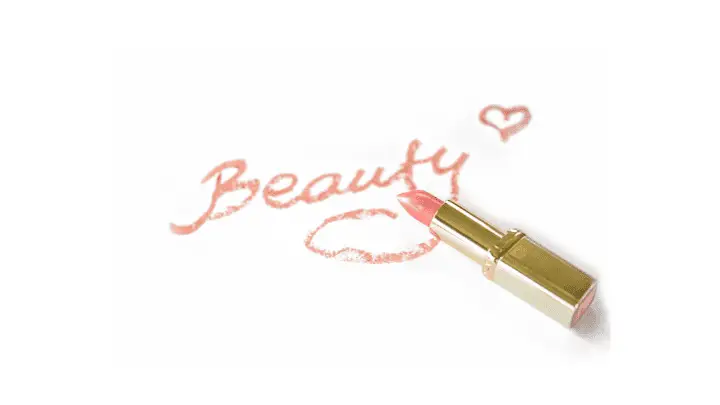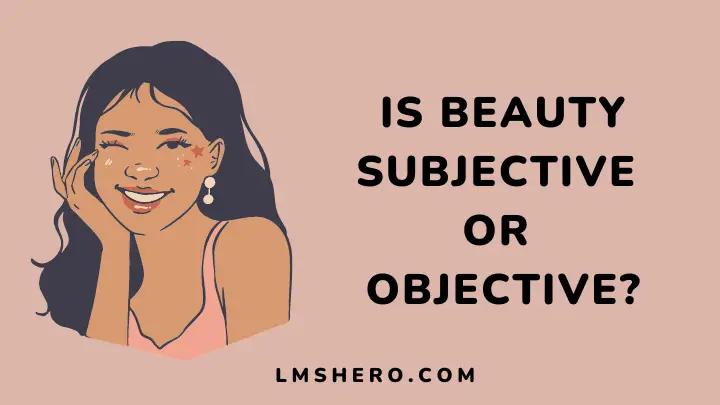Beauty is an enigmatic concept that has fascinated humans for centuries. It has been the subject of countless debates and discussions, with people often pondering whether beauty is subjective or objective.
This question has been pondered by artists, philosophers, and scientists alike, but the answer remains elusive. Some argue that beauty is entirely subjective and in the eye of the beholder.
Others contend that beauty has qualities that can be universally recognized and appreciated. Understanding whether beauty is subjective or objective has significant implications for various fields, including art, design, marketing, and psychology.
In this article, I will explore the different viewpoints on beauty’s nature and the evidence for and against subjective and objective beauty. By the end of this article, you will have gained a deeper insight into the nature of beauty and its subjective or objective nature.
Is beauty subjective?
Beauty being subjective implies that its perception varies from person to person. While one individual may find a particular object or person beautiful, another may not share the same sentiment.
Let’s examine the subjective perspective on beauty in more detail.
The role of perception
Beauty, being subjective, is heavily influenced by our perceptions and personal experiences.
People have unique preferences and biases shaped by their cultural background, upbringing, and tastes.
This subjectivity can be observed in various areas, including art, fashion, and physical attractiveness.
Cultural influences on beauty
Culture plays a significant role in shaping our understanding of beauty. Different cultures have diverse standards of attractiveness, influenced by historical, social, and geographical factors.
For example, a slim body type may be desirable in Western cultures, while a curvier figure is seen as more beautiful in some African cultures. These variations highlight the subjective nature of beauty.
The power of personal experience
Personal experiences and individual preferences also contribute to the subjective nature of beauty.
People are drawn to objects, landscapes, or individuals that evoke positive emotions or sentimental value.
Our unique experiences shape our perception of beauty, making it a deeply personal and subjective phenomenon.

Is beauty objective?
While the subjective perspective on beauty acknowledges the role of individual perception, compelling arguments suggest that beauty possesses objective qualities that transcend personal biases.
Let’s explore the objective perspective on beauty.
Universality of beauty
Certain aesthetic qualities are widely appreciated across cultures and periods, suggesting the existence of objective beauty. For instance, the Golden Ratio, a mathematical ratio often found in nature, has been considered aesthetically pleasing for centuries.
This ratio is observed in various forms, including the proportions of the human face, architecture, and art.
Evolutionary perspective
An evolutionary perspective also supports the existence of objective beauty. Evolutionary psychologists argue that certain traits and characteristics are universally perceived as attractive because they signify genetic fitness.
For example, symmetrical faces and healthy body proportions are attractive across cultures, indicating good health and reproductive potential.
The influence of art and mathematics
The relationship between art and mathematics further exemplifies the objective nature of beauty.
Artists often employ mathematical principles such as symmetry, balance, and harmony to create visually appealing compositions.
These principles, rooted in mathematical laws, are universally recognized as beautiful, transcending personal preferences.
FAQs
Is beauty purely subjective?
No, beauty encompasses both subjective and objective aspects. While personal preferences and cultural influences contribute to its subjectivity, there are also objective qualities that can be universally recognized as beautiful.
Does beauty have a biological basis?
Yes, beauty has a biological basis to some extent. Evolutionary psychology suggests that certain traits and characteristics are universally perceived as beautiful due to their association with genetic fitness and reproductive potential.
Can beauty be measured objectively?
While beauty cannot be measured with absolute precision, certain objective parameters and principles, such as the Golden Ratio, can provide a framework for evaluating aesthetic qualities.
Can cultural influences change our perception of beauty?
Yes, cultural influences significantly shape our perception of beauty. Different cultures have diverse standards of attractiveness, which are learned and reinforced through socialization and exposure.
Are personal experiences a major factor in determining beauty?
Yes, personal experiences and individual preferences play a significant role in shaping our perception of beauty. Our unique experiences contribute to the subjective aspects of beauty.
Final verdict: Is beauty subjective or objective?
After delving into the different viewpoints on the nature of beauty, the answer to whether beauty is subjective or objective is not straightforward. Beauty encompasses both subjective and objective aspects.
While humans have universal preferences for certain features, such as symmetry and proportion, there is also significant variation in beauty standards across different cultures and individuals.
To some extent, beauty is subjective and influenced by external factors, including social and cultural norms. However, objective aspects of beauty can also be quantified and studied.
In conclusion, whether beauty is subjective or objective is a complex and multifaceted question that cannot be answered definitively. Nevertheless, understanding the factors influencing our perception of beauty is crucial to appreciating its importance and harnessing its potential.
This includes art and design, psychology, and social interaction. Ultimately, beauty is a fascinating phenomenon that continues to captivate and inspire humans across the globe, and its elusive nature only adds to its allure and charm.
You can also learn more about what biased opinion means.
Thanks for reading.







